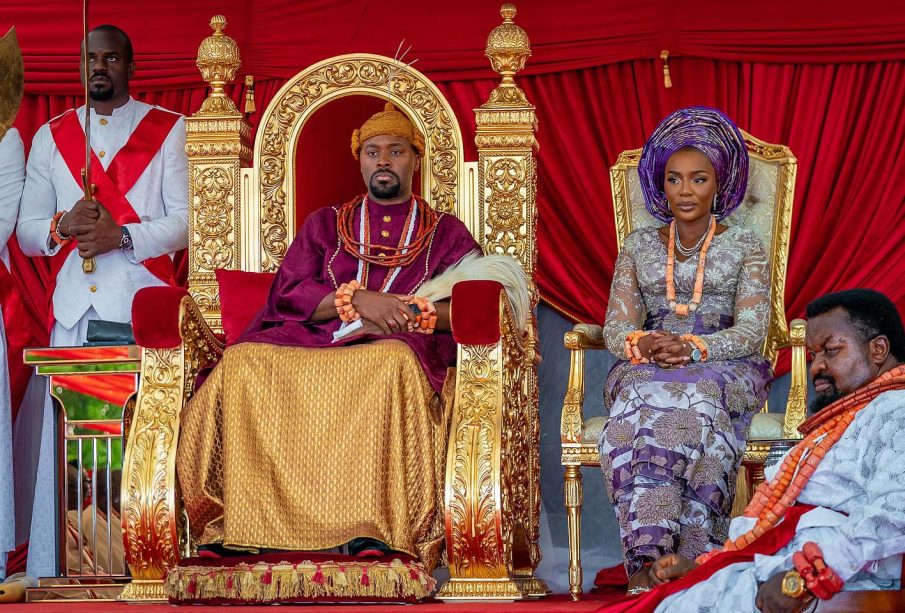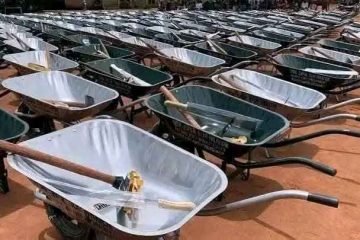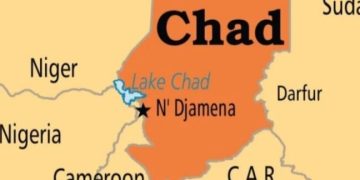Theatre as a Living Archive: How the Olu of Warri Uses Culture to Build Peace

In today’s rapidly changing world, traditional history and indigenous cultures are often threatened by modernization, migration, and the dominance of global media. For the Itsekiri people of Delta State, Nigeria, these pressures are real. Yet under the visionary leadership of Ogiame Atuwatse III, The Olu of Warri, and Queen Olori Atuwatse III, community theatre has been transformed into more than performance—it has become a living tool for preserving history, reinforcing identity, and building peace.
Theatre as a Cultural Archive
Community theatre has always been more than entertainment. In African societies, it serves as a repository of storytelling, education, and collective memory. Through dance, music, masquerades, rituals, and drama, the Itsekiri people transmit knowledge of their origins, their heroes, their values, and their worldview. Recognizing this cultural power, Ogiame Atuwatse III has elevated theatre into a cultural archive, protecting and projecting Itsekiri heritage for present and future generations.
The Olu’s Initiatives
Since ascending the throne, the Olu of Warri has emphasized reviving and sustaining cultural performances across the kingdom. Palace ceremonies, traditional festivals, and community gatherings have been staged as open theatres where history is not only told but enacted.
Key initiatives include:
-
Revitalized Festivals: Restoring Itsekiri festivals enriched with drama, music, and ritual, uniting the community in a celebration of identity.
-
Inclusive Performances: Inviting Urhobo, Ijaw, and other ethnic groups into cultural spaces, turning theatre into a platform for reconciliation rather than division.
-
Youth Engagement: Mobilizing young people to participate in drama, music, and cultural displays—offering them alternatives to neglect or violence and raising a new generation of cultural custodians.
Theatre as a Tool for Peace and Unity
Warri is often remembered for its conflicts of the past, but the Olu of Warri is deliberately rewriting this narrative. Through theatre and cultural performance as social rituals, he is creating spaces of healing where history is acknowledged and unity enacted. The shared acts of dancing, singing, and storytelling become instruments of peacebuilding, reminding all participants that they share a common heritage and a collective future.
Why It Matters
At a time when indigenous cultures risk fading into the background, the Olu of Warri’s approach is both timely and visionary. He demonstrates that theatre is not merely a form of entertainment but a social instrument for education, preservation, and peacebuilding. For the Itsekiri people, it ensures that history is not only remembered but lived. For Delta State and Nigeria, it provides a model of how traditional institutions can harness culture to foster unity in diversity.
About the Author

Erubasa Ovueraye is a Theatre Artist and Sociologist whose research explores the intersection of culture, security, and governance in shaping social and economic development. His work engages deeply with issues of tourism, policing, human security, and the blue economy in the Niger Delta.
He holds a B.A. in Theatre Arts and Film Studies, a Postgraduate Diploma in Sociology, and an M.Sc. in Sociology (Industrial Relations and Human Resource Management).

Leave a reply Cancel reply
Popular Categories
- Mauritania 1
- Guinea-Bissau 1
- Culture 1
- Trade 1
- Ivory Coast 1
- ICJ 1
- Somali 1
- Europe 1
- United Nations 1
- Israel 1
- Nepal 1
- Thailand 1
- Zimbabwe 1
- West Africa 1
- Brazil 1
- Finland 1
- Colombia 1
- Travel 1
- Automobile 1
- Myanmar 1
- Entertainment 1
- Mozambique 1
- Morocco 1
- Space 1
- UNDP 1
- Global Diplomacy 1
- Vatican City 1
- Book & Arts Spotlight 1
- ECCAS 1
- senegal 1
- The Hague 1
- Vietnam 1
- Gambia 1
- Tunisia 1
- Wildlife 1
- Togo 1
- Celebration 1
- Interview 1
- BRICS 1
- Democracy 1
- Defense 1
- Gabon 1
- Pakistan 1
- Weather 1
- Terrorism 1
- Algeria 2
- Economy 2
- Church 2
- Energy 2
- New York City 2
- Science 2
- Somalia 2
- Zambia 2
- Rome 2
- Angola 2
- World Bank 2
- Middle East 2
- Benin Republic 2
- Cameroon 2
- London 2
- Education 2
- Sierra Leone 2
- Business 2
- Chad 2
- Caribbean 2
- Ukraine 2
- Ukraine 2
- Haiti 2
- Guinea 2
- India 3
- Russia 3
- South Sudan 3
- Uganda 3
- Crime 3
- Namibia 3
- Music 3
- Ethiopia 3
- Transportation 3
- Rwanda 3
- Tanzania 3
- Congo 3
- Lesotho 3
- Aviation 3
- France 3
- Liberia 4
- Health 4
- Libya 5
- Egypt 5
- UN 5
- UK 5
- ECOWAS 5
- Mali 7
- China 7
- Niger 8
- Editorial 8
- Sudan 9
- Burkina Faso 10
- Politics 10
- Tech 12
- Technology and Business 13
- Ghana 13
- DR Congo 15
- World 15
- Sports 17
- Kenya 17
- Opinion 18
- People 22
- South Africa 28
- US 44
- OP-ED 57
- Africa 81
- Nigeria 151

Email: [email protected]










